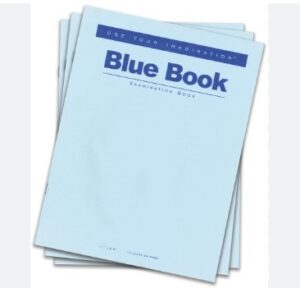 |
| As a math instructor, I face many challenges in my classroom– math anxiety, dislike of math, and disparities in preparation. Typically, the “outside” world rarely infiltrates our discussions. However, everything changed on November 9, 2016, when student reactions to the election blindsided me. I was unprepared, and it did not go well.
I know many of you are more informed and better prepared to handle such issues, and for that, I am grateful. |
Teaching, Tech, and Tidbits Digest
The posts below are from a bi-weekly digest that encapsulates a range of evidence-based best practices and cutting-edge insights on innovative teaching strategies, effective use of technology, student engagement techniques, and effective assessment, to name a few. The content, diligently curated or crafted by the director Dr. Lew Ludwig, is grounded in robust research and drawn from a wide array of innovative articles, books, and online resources. The goal is to support timely, ongoing faculty development with the most current and impactful knowledge in the field.
Teaching: Student Mental Health Part II
 |
| Recently, I shared an article by Mays Imad that explored the challenges our students are facing, how struggle is natural, and how we can help them develop resilience. In this second installment, she digs deeper into the biological underpinnings of stress and resilience, sharing a systemic approach to resilience from Michael Ungar that she applies with her students. |
Teaching: Blue Books

Caught in the Act is a new bi-weekly column where Denison faculty share something cool that their humble colleague does with their classes. This week, Andrea Lourie, by way of May Mei, caught Matt Jungers in the act of a cool teaching practice.
Beyond the formal assessments, Matt has implemented a more informal method to monitor his students’ progress and well-being: the use of Blue Books.
Teaching: Creating Classroom Cultures
 |
| Here is a quick look at some of the things discussed at our Teaching Matters session on Creating Classroom Cultures:
Do you know what kind of culture works for your teaching style and learning goals? Erin Henshaw explained how she strives to create a warm, welcoming environment. Meanwhile, Heather Poole and Heather Rhodes both shared their strategies for getting students to co-create “dynamic” and “motivated” classroom communities. |
Teaching: Being Human Together
 |
| During the Spring 2020 semester, I audited Ali Miller’s Intro to Stats course. She kicked off the first day with an activity she called “Being Human Together.” She introduced herself through a series of fun facts and then invited her students to do the same through an in-class survey. One of the questions asked for their “favorite musical artist.” |
Teaching: We Can Help Students Think
 |
| In this article, John Warner, author of Why They Can’t Write, ruminates on what it means to think and what it means to teach students to think in the age of AI. He usefully points out that students have always turned to strategies and tools to help them think or to help them avoid thinking. |
Tech Tip from ETS: Slow down the information firehose and reap the rewards
 |
| Do you find the amount of information coming at you via email, text, and social media overwhelming? Consider silencing your emails and notifications to improve your ability to focus. Similarly, you can establish set times to respond to emails so that you are not constantly switching tasks, which decreases attention span and productivity. USA Today reviews nine apps designed to help improve your focus; the apps can block websites, apps, and emails. |
Teaching: The Thumb Swipe Distraction
 |
| “Are you smiling at your crotch?” This playful question is the final code in a series my students and I have developed to tactfully highlight when smartphones are distracting us. We collectively agreed on this humorous approach to maintaining focus in the classroom (full details below).
Now that the initial “honeymoon” phase of the first few weeks has passed, how has smartphone use been in your classes? |
Tech: Crafting Assessments that Matter in an AI World
 |
| Lisa Blue, Director of Artificial Intelligence Strategies at EKU, has developed this wonderful presentation and this useful set of handouts. It’s time to reconsider our assessment strategies in light of AI advancements like Strawberry. |
Tech: GPT-o1 aka Strawberry
 |
| Open AI just released a new model, GPT-o1, which some call strawberry. It lets the AI “think through” a problem before solving it. As someone once quipped, today’s AI is the dumbest it will ever be. |
